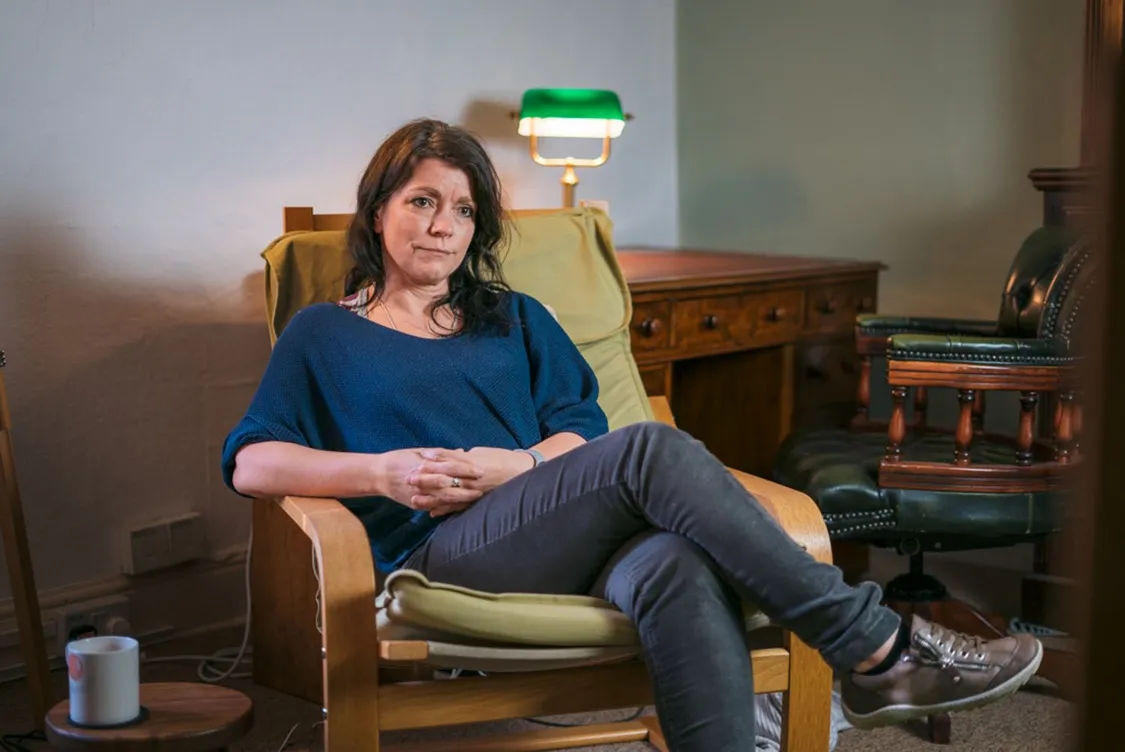21 Oct 2025
The new drinking dilemma
A glass of wine to unwind, prosecco brunches with friends, “wine o’clock” memes on Instagram — drinking has become woven into modern womanhood.
Alcohol marketing increasingly tailors products to women: lighter flavours, pretty bottles, low-alcohol versions packaged as “healthier” alternatives. Such subtle positioning can contribute to social acceptability.
But beneath the gloss and humour, a quiet crisis is emerging. Across the UK and US, more women are drinking heavily and seeking help for alcohol dependence than ever before.
Is alcohol consumption increasing in women?
In previous years, the gap between men and women was much higher.
- Women’s consumption has grown from 3:1 in 2016 to almost 1:1 in 2022.
"We have a real concern that while there might be fewer people drinking, many of those who are drinking might be doing so specifically to try to cope," White says. "And that is problematic."
- “A paper in a 2018 RSA medical journal found alcohol-related visits to the emergency room from 2006 to 2014 increased 70% for women, compared with 58% for men. Another paper reported that the rate of alcohol-related cirrhosis from 2009 to 2015 rose 50% for women, compared with 30% for men.
- Women now make up 39% of alcohol-related hospital admissions in England.
- In the UK, 26% of women are estimated to engage in binge drinking (defined as six or more drinks in one session) at least once a month — the highest rate globally among women according to an OECD comparison.
- In 2023, England recorded 151,594 potential years of life lost in females due to alcohol-related conditions, equivalent to 533 per 100,000 women.
- In 2024, 15% of women in England were drinking more than the recommended 14 units a week, compared to 32% of men.
More data can be found on our Alcohol Addiction Statistics UK page.
Why the shift? Cultural pressures, mental health and female-specific factors
1. Changing social norms and the “drink to belong” culture
Women today often face subtle (and not so subtle) pressure to drink alcohol in social contexts — whether it’s work dinners, “wellness” wine nights, Instagram culture, or the myth that cocktails are “girly.” In many professions (media, hospitality, creative industries) drinking is part of the social currency. For some women, refusing a drink can feel socially awkward or exclusionary and lead to sober shaming.
Jakana Rita, BACP Therapist at Rehabs UK notes:

Jakana Rita BACP Therapist at Rehabs UK
“I have seen many factors such as pressures of sole responsibility of both childcare and managing full time work with little or no help outside of this. I see more women isolated due to these circumstances and therefore unable to affectively access help.”
“Societal pressure plays in women’s drinking habits: I have worked with shame patterns of thinking which leads to hiding alcohol use as well as fear of judgment and fear of consequences normally linked to being a mother.”
Isabelle Hawkins, who is in recovery, and a previous guest on the Altered Attitudes Podcast, adds:

Isabelle Hawkins - National Diversity Award Winner 2025
“I was working in the advertising industry, which is a very social, party-heavy industry. … there was an unspoken pressure to keep up with the drinking culture in order to be accepted.”
“When I first started telling people I was in recovery, I was often met with disbelief. ‘But you’re young,’ they’d say, or ‘You don’t look like someone with a problem.’”
With work culture, social expectations for women to both perform and also to appear composed, and the invisibility of “hidden” drinking, cultural pressure is a strong contributing factor.
2. Stress, burnout and mental health
High rates of stress, anxiety, and burnout (especially among women juggling work, home, caregiving roles) can push some towards using alcohol as a coping mechanism. Drinking “just to relax” can gradually escalate into reliance.
A 2024 Bupa study revealed the following insights:
- 48% of employees have used addictive behaviours to cope with professional stress, and 40% say workplace culture contributes. Work-related stress, depression, or anxiety caused 16.4 million working days to be lost in Great Britain in 2023/24.
- 74% of people said they have felt stressed they have been overwhelmed or unable to cope.
- 46% reported that they ate too much or ate unhealthily due to stress.
- 29% reported that they started drinking or increased their drinking, and 16% reported that they started smoking or increased their smoking.
3. Co-occurring mental health conditions and neurodiversity
Women with ADHD, anxiety, depression, or trauma histories may have a higher vulnerability to turning to alcohol as self-medication. The research on ADHD and substance misuse is growing — impulsivity or emotional dysregulation can increase risk of misuse.
- Adults with ADHD have a higher prevalence of substance abuse disorder (15.2%) compared to those without ADHD (5.6%).
- Between 33% and 44% of young people with ADHD experience alcohol misuse or dependence, research on ADHD with comorbid substance use disorder: review of treatment shows.
- People with ADHD are 5 to 10 times more likely to have alcohol addiction than those without ADHD. About 25% of adults receiving treatment for alcohol and substance abuse also have ADHD.
Jakana Rita, Head Therapist, at Rehabs UK says:
“I am seeing an increase in women coming to me who have experienced sexual trauma and abuse in relationships who tell me they started to use alcohol as a way of coping.”
“Co-occurring conditions such as ADHD, anxiety, or depression, which are disproportionately underdiagnosed in women and may lead to self-medication with alcohol. I have seen women who have been diagnosed later in life and ADHD was never picked up until an alcohol problem had already developed. I have noticed higher rates of GAD diagnosis in these women as well which they say they also use alcohol to self medicate.”
Isabelle Hawkins, in recovery and diagnosed with ADHD:
“Looking back, my undiagnosed ADHD played a significant role in my drinking. … I struggled to cope with workload, prioritise tasks, and manage the chaos of daily life. … Alcohol felt like a way to soothe that storm.”
Trauma (sexual, relational, childhood) appears repeatedly as a precipitant: women use alcohol to numb, to escape, or to cope with overwhelming emotional load. When conditions like ADHD or anxiety are undiagnosed or untreated, alcohol often becomes a substitute coping strategy.
4. The “closing gender gap”
Historically, men drank far more than women — but over recent decades that gap has narrowed dramatically. In earlier birth cohorts men might be 2–3 times more likely to misuse alcohol than women; now those ratios are much closer.
Jenny Esmas (main photo), CQC Registered Manager at Nest Healthcare, a partner of Rehabs UK, says this trend is undeniable:
“We’ve noticed a clear increase in the number of working-age women seeking treatment for alcohol addiction… What’s significant is that … these women are reaching out earlier than before, recognising the impact alcohol is having not only on their health, but also on their performance at work, relationships, and overall wellbeing.”
Women’s bodies aren’t men’s: female-specific risks even at lower levels
Women have a higher vulnerability to physical harms at lower alcohol consumption levels than men: liver disease, heart problems, brain-volume damage etc., often emerging earlier. Even moderate drinking is linked with increased breast cancer risk in women, and reproductive health impacts: menstrual cycle disruption, fertility issues, potential Foetal Alcohol Spectrum Disorder (FASD) and earlier menopause.
Biological differences can play a significant role in how addiction affects the body. Research shows that women often experience the physical consequences of substance misuse more quickly and more severely than men, even when consuming similar amounts over the same period.
Jakana Rita, Head Therapist at Rehabs UK, explains that this increased vulnerability is partly due to biological factors:
“I believe women often suffer more severe physical consequences from addiction due to biological differences, such as having a smaller liver, which can affect how substances are metabolised in the body.”
This means alcohol and drugs may remain in a woman’s system for longer, increasing the risk of liver damage, cardiovascular issues, and long-term health complications. Understanding these gender-specific factors is essential for delivering effective, personalised addiction treatment and ensuring women receive the specialist support they need throughout recovery.
Women often develop alcohol dependence differently to men, with research showing that the progression from initial use to addiction can occur more rapidly — a phenomenon sometimes referred to as “telescoping”. Alongside biological factors, social pressures, trauma, and mental health challenges can further accelerate this process for many women.
Isabelle, a recovering alcoholic, describes how quickly alcohol took hold of her life at a young age, reflecting a pattern commonly seen in women with alcohol dependence:
“I noticed very early on how quickly the obsession to drink took hold. The physical and emotional effects escalated at an alarming speed. Panic attacks and chronic anxiety developed very quickly, and by the age of 19 I was already experiencing withdrawal symptoms, including morning drinking.”
Isabelle’s experience highlights how alcohol can impact women both physically and psychologically at an accelerated pace. Early withdrawal symptoms, heightened anxiety, and compulsive drinking behaviours are serious indicators of dependence and underline the importance of early, gender-responsive intervention. Recognising these warning signs can help women access support sooner and reduce the risk of long-term health consequences associated with alcohol misuse.
Side Effects of Alcohol Use in Women
Alcohol affects women differently than men, often leading to faster-developing health issues and heightened emotional consequences. Understanding these effects can help women — and the people who care about them — recognise when drinking has become harmful and when professional support may be needed.
Immediate Effects
- Impaired coordination and judgement, increasing the risk of accidents or unsafe decisions
- Nausea, vomiting and dehydration
- Sleep disruption and reduced sleep quality
- Memory lapses and blackouts
- Increased anxiety or “hangxiety”
Physical Health Effects
- Women experience the physical impact of alcohol more quickly due to differences in metabolism and body composition.
- Higher risk of liver damage, including hepatitis and cirrhosis
- Elevated blood pressure and increased risk of stroke
- Hormonal disruption affecting menstrual cycles and fertility
- Increased risk of breast cancer
- Weakened immune system and slower recovery from illness
Mental and Emotional Effects
- Heightened anxiety, low mood and mood instability
- Worsening of existing mental health conditions
- Faster progression from casual drinking to dependency (“telescoping”)
- Memory issues, confusion and cognitive decline with long-term heavy drinking
Sexual and Reproductive Health
- Reduced libido and sexual dysfunction
- Irregular or missed periods
- Increased vulnerability to unplanned pregnancy due to impaired judgement
- Risk of Foetal Alcohol Spectrum Disorders (FASD) during pregnancy
Social and Relationship Impact
- Tension and conflict within families or relationships
- Decline in work performance or motivation
- Isolation or secrecy driven by shame and stigma
- Avoiding social events or hiding drinking habits
Expert tips: when to reach out
- Notice your “why.” If alcohol is a tool to calm anxiety, mask stress, or cope with loneliness, it’s time to check in with yourself.
- Reach out early. Support services, such as Rehabs UK, can help you explore safe and non-judgmental treatment options.
- Reframe self-care. As Jenny says, “Asking for help isn’t weakness — it’s self-love.”
Advice for women who may need help seeking recovery:
“My advice to women — and their loved ones — is simple: please don’t wait,” Jenny says. “I grew up in a family affected by alcoholism and lost both my father and brother to it. That experience drives my belief that asking for help is one of the bravest, most loving things you can do for yourself and your family.
“Alcohol may feel like a short-term solution, but real strength comes from choosing healthier ways to cope — exercise, mindfulness, journaling, nature, community and peers. Self-care isn’t indulgent; it’s essential.
“You are not your addiction. You are your potential. Seek help, rediscover your worth, and build a future filled with strength, balance, and joy.”
Isabelle's reflection:
“For me … healing really happened in community … showing up for myself each day … asking Why am I feeling this way? … addiction doesn’t discriminate … struggling with alcohol doesn’t make you a failure or a bad person ‒ you are not alone.”
Jakana’s advice:
“Access help early and be open to group work where you can find like-minded people … building healthier social lives.”
Recovery is within reach
Key Takeaways
- Female alcoholism is often hidden due to stigma, shame, and societal expectations, meaning many women delay seeking support until their drinking has significantly impacted their health, relationships, and daily life.
- Women frequently face gender-specific triggers such as caregiving stress, trauma, hormonal changes, and pressures to “hold everything together”.
- The consequences of alcohol misuse for women can be faster-developing and more severe, including heightened risks to physical and mental health.
- Family members—especially partners and children—often experience emotional distress, confusion, and isolation when trying to support a woman struggling with alcohol dependency.
- Compassionate, non-judgemental support, early intervention, and specialist treatment options significantly increase the likelihood of recovery.
How Rehabs UK Supports Women and Their Families
At Rehabs UK, we provide a range of support services and treatments, including aftercare for those overcoming alcoholism and online family support groups for loved ones offering care and understanding.
We provide:
Specialist treatment options tailored to the needs of women, including trauma-informed therapy and programmes that address the root causes of alcohol dependency.
Dedicated family support, helping partners, children, and relatives understand alcohol use, set boundaries, and rebuild healthy communication.
Online family groups and aftercare, giving loved ones consistent guidance long after treatment has begun.
A compassionate, confidential assessment process, ensuring women feel safe, heard, and supported from the very first step.
If you or someone you know is struggling with alcohol please do not hesitate to contact our fully trained Treatment Advisors for a free assessment.
